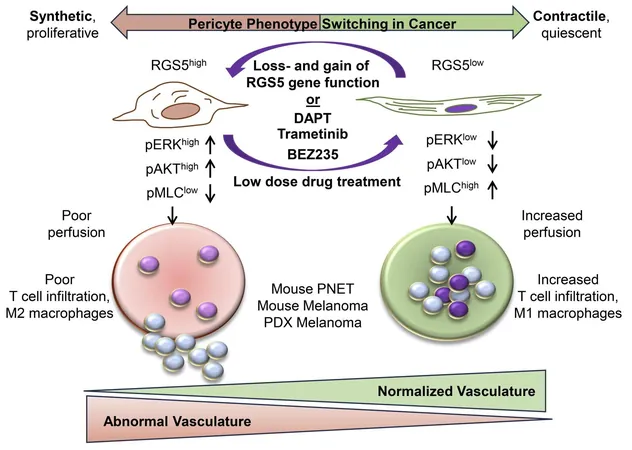
Rwanda Grapples with Marburg Virus Outbreak: 8 Fatalities Confirmed in Just Days!
2024-09-30
Rwanda Faces a Health Crisis
Rwanda is currently facing a grave health crisis as it reports eight fatalities linked to the highly contagious Marburg virus, just days after declaring an outbreak of this deadly hemorrhagic fever. Alarmingly, this virus, which has no authorized vaccine or treatment, poses a severe threat, with a fatality rate that can reach up to 88% in untreated cases.
Origins and Transmission
The origins of the Marburg virus persist in the shadows, as it is believed to stem from fruit bats. Transmission occurs through close contact with the bodily fluids of infected individuals or contaminated surfaces, such as bedding. The urgent situation prompted Rwandan authorities to declare the outbreak last Friday, swiftly followed by the first reports of multiple deaths.
Current Status
As of now, there are 26 confirmed cases of Marburg in Rwanda, with health minister Sabin Nsanzimana confirming that eight individuals have tragically succumbed to the illness. Among those infected, a significant number are healthcare workers, exacerbating the risk of further spreading within the nation's healthcare system across six of the country’s thirty districts.
Health Response
In response to the outbreak, Rwandan officials are intensifying efforts in contact tracing and testing, reinforcing the need for the public to avoid physical contact to mitigate the virus's spread. Approximately 300 people who had contact with confirmed cases have been identified and are now in isolation facilities to protect public health.
Symptoms and Diagnosis
The symptoms of Marburg virus disease are debilitating, starting with fever, muscle pains, diarrhea, and vomiting, ultimately leading to severe outcomes such as extreme blood loss and death. The incubation period for the disease can range from three days to three weeks, creating challenges in early detection and management.
Global Response
In an encouraging move, the World Health Organization (WHO) has ramped up support for Rwanda as it collaborates with local health authorities to contain the outbreak effectively. WHO Director-General Tedros Adhanom Ghebreyesus communicated the organization's commitment through social media, emphasizing the global community's attention on the situation.
Precautionary Measures
Moreover, the U.S. Embassy in Kigali has advised its staff to work remotely and minimize visits to offices as a precautionary measure.
Historical Context
Historically, Marburg outbreaks have been documented in various African nations, including Tanzania, Equatorial Guinea, and Ghana. This virus was first identified in 1967 following outbreaks in laboratories in Marburg, Germany, and Belgrade, Serbia, leading to several fatalities among researchers.
Additional Health Challenges
In addition to the Marburg concerns, Rwanda is also tackling a separate challenge with mpox, a virus linked to smallpox that typically produces milder symptoms. Rwanda recently reported six mpox cases and launched a vaccination campaign earlier this month, with more vaccines anticipated soon. Neighboring Congo remains the epicenter of the ongoing mpox outbreak, which the WHO classifies as a global health emergency.
Conclusion
As Rwanda battles these two public health challenges, officials and health organizations worldwide watch closely, emphasizing the need for vigilance and rapid response to emerging infectious diseases.




 Brasil (PT)
Brasil (PT)
 Canada (EN)
Canada (EN)
 Chile (ES)
Chile (ES)
 España (ES)
España (ES)
 France (FR)
France (FR)
 Hong Kong (EN)
Hong Kong (EN)
 Italia (IT)
Italia (IT)
 日本 (JA)
日本 (JA)
 Magyarország (HU)
Magyarország (HU)
 Norge (NO)
Norge (NO)
 Polska (PL)
Polska (PL)
 Schweiz (DE)
Schweiz (DE)
 Singapore (EN)
Singapore (EN)
 Sverige (SV)
Sverige (SV)
 Suomi (FI)
Suomi (FI)
 Türkiye (TR)
Türkiye (TR)